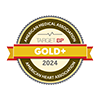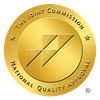The Importance of getting your COVID-19 Vaccine & Booster
The Importance of the COVID-19 Vaccine & Booster Shots
The omicron variant is proving to be extremely contagious and CareSouth Carolina is joining with the CDC to strongly encourage you to get your COVID-19 vaccine and booster shot if you haven’t done so already.
“Omicron appears to be more transmittable than the other variants up to this point,” CareSouth Carolina Chief of Nursing Tracie Thigpen said. “It is important to receive your booster vaccine to increase your body’s ability to fight off the virus.”
Vaccines and Boosters for Ages 18 and older
CareSouth Carolina is administering the Pfizer, Moderna and Johnson & Johnson COVID-19 vaccines and booster shots at our office locations. The MOBY units are also providing COVID-19 vaccines and Flu shots at community locations. The schedule for these vaccine clinics can be found in the calendar section of our website. Walk-ins are welcome and you DO NOT need an appointment.
Pfizer Booster vaccine for ages 12-17
CareSouth Carolina is now offering the Pfizer COVID-19 booster shot for ages 12 & up. For those ages 12 and up, the booster can be given six months after being fully vaccinated. Children ages 5-11 are not currently approved to receive a booster shot.
To schedule your child for a vaccine or a booster shot, please contact the CareSouth Carolina Hartsville Pediatrics, Bishopville, Bennettsville Pediatrics or Latta Center to make an appointment.
Before recommending COVID-19 vaccination for children, scientists conducted clinical trials with thousands of children and no serious safety concerns were identified. The FDA gave the Pfizer-BioNTech COVID-19 vaccine emergency authorization to use in children ages 5-15 years old and full approval to use in people ages 16 years and older.
Pfizer vaccine for ages 5-17
The Pfizer vaccine is currently the only vaccine approved for those ages 5-17. We currently offer the vaccine at five of our medical offices.
To schedule your child for a vaccine or a booster shot, please contact the CareSouth Carolina Hartsville Pediatrics, Bishopville Pediatrics, Bennettsville Pediatrics or Latta Center to make an appointment.
For the latest updates and availability, please visit caresouth-carolina.com or give one of our offices a call.
What We Know About Omicron, According to The CDC
CDC has been collaborating with global public health and industry partners to learn about Omicron, as we continue to monitor its course. We don’t yet know how easily it spreads, the severity of illness it causes, or how well available vaccines and medications work against it.
Spread
The Omicron variant likely will spread more easily than the original SARS-CoV-2 virus and how easily Omicron spreads compared to Delta remains unknown. CDC expects that anyone with Omicron infection can spread the virus to others, even if they are vaccinated or don’t have symptoms.
Severe Illness
More data are needed to know if Omicron infections, and especially reinfections and breakthrough infections in people who are fully vaccinated, cause more severe illness or death than infection with other variants.
Vaccines
Current vaccines are expected to protect against severe illness, hospitalizations, and deaths due to infection with the Omicron variant. However, breakthrough infections in people who are fully vaccinated are likely to occur. With other variants, like Delta, vaccines have remained effective at preventing severe illness, hospitalizations, and death. The recent emergence of Omicron further emphasizes the importance of vaccination and boosters.
Treatments
Scientists are working to determine how well existing treatments for COVID-19 work. Based on the changed genetic make-up of Omicron, some treatments are likely to remain effective while others may be less effective.
We have the Tools to Fight Omicron
Vaccines
Vaccines remain the best public health measure to protect people from COVID-19, slow transmission, ad reduce the likelihood of new variants emerging.
COVID-19 vaccines are highly effective at preventing severe illness, hospitalizations, and death.
Scientists are currently investigating Omicron, including how protected fully vaccinated people will be against infection, hospitalization, and death.
CDC recommends that everyone 5 years and older protect themselves from COVID-19 by getting fully vaccinated.
CDC recommends that everyone ages 16 years and older get a booster shot after completing their primary COVID-19 vaccination series. You are eligible for a booster at 5 months after completing Pfizer-BioNTech primary series, 6 months after completing Moderna primary series, and 2 months after the initial J&J/Janssen vaccine. Individuals ages 16-17 are only eligible for the Pfizer-BioNTech COVID-19 vaccine.
Masks
Masks offer protection against all variants.
CDC continues to recommend wearing a mask in public indoor settings in areas of substantial or high community transmission, regardless of vaccination status.
CDC provides advice about masks for people who want to learn more about what type of mask is right for them depending on their circumstances.
Testing
Tests can tell you if you are currently infected with COVID-19.
Two types of tests are used to test for current infection: nucleic acid amplification tests (NAATs) and antigen tests. NAAT and antigen tests can only tell you if you have a current infection.
Individuals can use the COVID-19 Viral Testing Tool to help determine what kind of test to seek.
Additional tests would be needed to determine if your infection was caused by Omicron.
Visit your state, tribal, local, or territorial health department’s website to look for the latest local information on testing.
Self-tests can be used at home or anywhere, are easy to use, and produce rapid results.
If your self-test has a positive result, stay home or isolate for 10 days, wear a mask if you have contact with others, and call your healthcare provider.
If you have any questions about your self-test result, call your healthcare provider or public health department.














